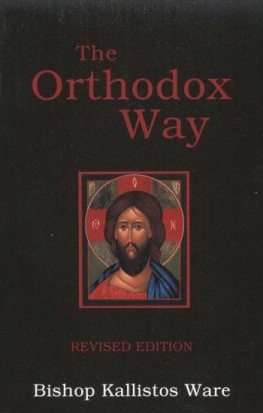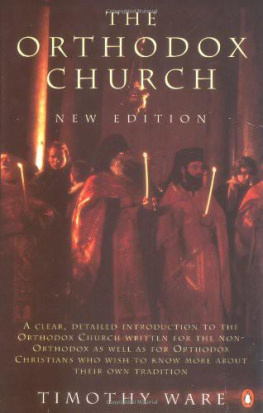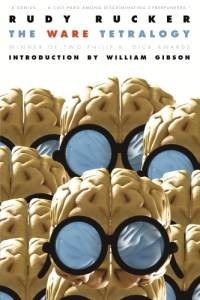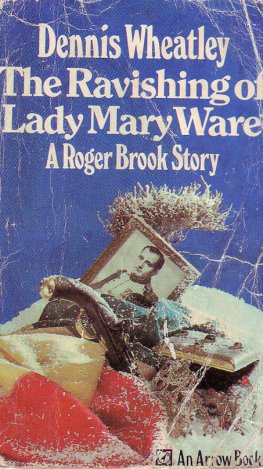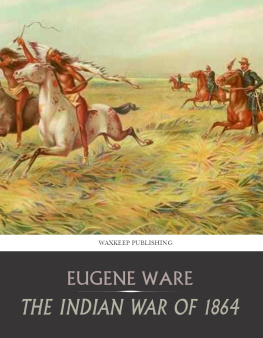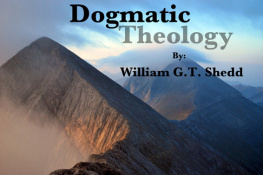Kallistos Ware - The Orthodox Way
Here you can read online Kallistos Ware - The Orthodox Way full text of the book (entire story) in english for free. Download pdf and epub, get meaning, cover and reviews about this ebook. year: 0, genre: Religion / Science. Description of the work, (preface) as well as reviews are available. Best literature library LitArk.com created for fans of good reading and offers a wide selection of genres:
Romance novel
Science fiction
Adventure
Detective
Science
History
Home and family
Prose
Art
Politics
Computer
Non-fiction
Religion
Business
Children
Humor
Choose a favorite category and find really read worthwhile books. Enjoy immersion in the world of imagination, feel the emotions of the characters or learn something new for yourself, make an fascinating discovery.
- Book:The Orthodox Way
- Author:
- Genre:
- Year:0
- Rating:3 / 5
- Favourites:Add to favourites
- Your mark:
- 60
- 1
- 2
- 3
- 4
- 5
The Orthodox Way: summary, description and annotation
We offer to read an annotation, description, summary or preface (depends on what the author of the book "The Orthodox Way" wrote himself). If you haven't found the necessary information about the book — write in the comments, we will try to find it.
The Orthodox Way — read online for free the complete book (whole text) full work
Below is the text of the book, divided by pages. System saving the place of the last page read, allows you to conveniently read the book "The Orthodox Way" online for free, without having to search again every time where you left off. Put a bookmark, and you can go to the page where you finished reading at any time.
Font size:
Interval:
Bookmark:
THE
ORTHODOX
WAY
by
Bishop Kallistos Ware
ST VLADIMIR'S SEMINARY PRESS
CRESTWOOD, NEW YORK
LIBRARY OF CONGRESS CATALOGING-IN-PUBLICATION DATA
Ware, Kallistos, 1934-
The Orthodox way / by bishop Kallistos Ware.New rev. ed.p. cm. Includes bibliographical references and index. ISBN 0-913836-58-3 1. Orthodox Eastern ChurchDoctrines. 2. God. I. Title
BX320.2.W37 1995
230'.19DC20
DLC
for Library of Congress 94-40391
CIP
THE ORTHODOX WAY
Copyright 1979 by Kallistos Ware
First published by A.R. Mowbray & Co., Ltd.

ST VLADIMIR'S SEMINARY PRESS
575 Scarsdale Road
Crestwood, NY 10707
1-800-204-2665 svspress.com
All Rights Reserved
ISBN 978-0-88141-448-6 .MOBI
ISBN 978-0-88141-449-3 .EPUB
Contents
PROLOGUE
SIGNPOSTS ON THE WAY
I am the Way, the Truth and the Life. John 14:6 The Church gives us not a system, but a key; not a plan of God's City, but the means of entering it. Perhaps someone will lose his way because he has no plan. But all that he will see, he will see without a mediator, he will see it directly, it will be real for him; while he who has studied only the plan risks remaining outside and not really finding anything. Fr Georges FlorovskyOne of the best known of the Desert Fathers of fourth-century Egypt, St Sarapion the Sindonite, travelled once on pilgrimage to Rome. Here he was told of a celebrated recluse, a woman who lived always in one small room, never going out. Skeptical about her way of lifefor he was himself a great wandererSarapion called on her and asked: Why are you sitting here? To this she replied: I am not sitting, I am on a journey.
I am not sitting, I am on a journey. Every Christian may apply these words to himself or herself. To be a Christian is to be a traveller. Our situation, say the Greek Fathers, is like that of the Israelite people in the desert of Sinai: we live in tents, not houses, for spiritually we are always on the move. We are on a journey through the inward space of the heart, a journey not measured by the hours of our watch or the days of the calendar, for it is a journey out of time into eternity.
One of the most ancient names for Christianity is simply the Way. About that time, it is said in the Acts of the Apostles, there rose no little stir concerning the Way (19:23); Felix, the Roman governor of Caesarea, had a rather accurate knowledge of the Way (24:22). It is a name that emphasizes the practical character of the Christian faith. Christianity is more than a theory about the universe, more than teachings written down on paper; it is a path along which we journeyin the deepest and richest sense, the way of life.
There is only one means of discovering the true nature of Christianity. We must step out upon this path, commit ourselves to this way of life, and then we shall begin to see for ourselves. So long as we remain outside, we cannot properly understand. Certainly we need to be given directions before we start; we need to be told what signposts to look out for; and we need to have companions. Indeed, without guidance from others it is scarcely possible to begin the journey. But directions given by others can never convey to us what the way is actually like; they cannot be a substitute for direct, personal experience. Each is called to verify for himself what he has been taught, each is required to re-live the Tradition he has received. The Creed, said Metropolitan Philaret of Moscow, does not belong to you unless you have lived it. No one can be an armchair traveller on this all-important journey. No one can be a Christian at second hand. God has children, but he has no grandchildren.
As a Christian of the Orthodox Church, I wish particularly to underline this need for living experience. To many in the twentieth-century West, the Orthodox Church seems chiefly remarkable for its air of antiquity and conservatism; the message of the Orthodox to their Western brethren seems to be, We are your past. For the Orthodox themselves, however, loyalty to Tradition means not primarily the acceptance of formulae or customs from past generations, but rather the ever-new, personal and direct experience of the Holy Spirit in the present , here and now.
Describing a visit to a country church in Greece, John Betjeman stresses the element of antiquity, but he also stresses something more:
The domed interior swallows up the day.Here, where to light a candle is to pray,
The candle flame shows up the almond eyes
Of local saints who view with no surprise
Their martyrdoms depicted upon walls
On which the filtered daylight faintly falls.
The flame shows up the cracked paintsea-green blue
And red and gold, with grained wood showing through
Of much kissed ikons, dating from, perhaps,
The fourteenth century
Thus vigorously does the old tree grow,
By persecution pruned, watered with blood,
Its living roots deep in pre-Christian mud.
It needs no bureaucratical protection.
It is its own perpetual resurrection
Betjeman draws attention here to much that an Orthodox holds precious: the value of symbolic gestures such as the lighting of a candle; the role of ikons in conveying a sense of the local church as heaven on earth; the prominence of martyrdom in the Orthodox experienceunder the Turks since 1453, under the Communists since 1917. Orthodoxy in the modern world is indeed an old tree. But besides age there is also vitality, a perpetual resurrection; and it is this that matters, and not mere antiquity. Christ did not say, I am custom; he said, I am the Life.
It is the aim of the present book to uncover the deep sources of this perpetual resurrection. The book indicates some of the decisive signposts and milestones upon the spiritual Way. No attempt is made here to provide a factual account of the past history and contemporary condition of the Orthodox world. Information on this can be found in my earlier work, The Orthodox Church (Penguin Books), originally published in 1963, and issued in a revised edition in 1993; and, so far as possible, I have avoided repeating what is said there.
My purpose in this book is to offer a brief account of the fundamental teachings of the Orthodox Church, approaching the faith as a way of life and a way of prayer. Just as Tolstoy entitled one of his short stories, What men live by, so this book might have been called, What Orthodox Christians live by. In an earlier and more formal epoch it might have taken the form of a catechism for adults, with questions and answers. But there is no attempt to be exhaustive. Very little is said here about the Church and its conciliar character, about the communion of saints, the sacraments, the meaning of liturgical worship; perhaps I shall be able to make this the theme of another book. While referring occasionally to other Christian communions, I do not undertake any systematic comparisons. My concern is to describe in positive terms the faith by which as an Orthodox I live, rather than to suggest areas of concord or disagreement with Roman Catholicism or Protestantism.
Anxious that the voice of other and better witnesses should be heard besides my own, I have included many quotations, especially at the start and conclusion of each chapter. Brief notes on the authors and sources cited may be found at the end of the book. Most of the passages are from the Orthodox service books, used daily in our worship, or else from those whom we term the Fatherswriters mainly from the first eight centuries of Christian history, but in some cases later in date; for an author in our own day may also be a Father. These quotations are the words that have proved most helpful to me personally as signposts for my own explorations upon the Way. There are of course many other writers, not cited here by name, on whom I have also drawn.
Next pageFont size:
Interval:
Bookmark:
Similar books «The Orthodox Way»
Look at similar books to The Orthodox Way. We have selected literature similar in name and meaning in the hope of providing readers with more options to find new, interesting, not yet read works.
Discussion, reviews of the book The Orthodox Way and just readers' own opinions. Leave your comments, write what you think about the work, its meaning or the main characters. Specify what exactly you liked and what you didn't like, and why you think so.

